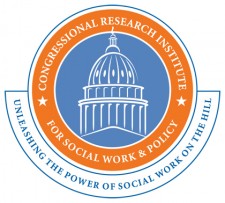The opening lyrics of the Arthur Herzog, Jr. song “God Bless the Child” made famous by Billie Holiday sums up today’s economy all too well: “Them that’s got shall get/Them that’s not shall lose.” That sums up the findings of a report by Gordon W. Green, Jr. and John F. Coder for Sentier Research, a company specializing in analyzing household income data. They found median income in the United States—while trending upward—is still 6.1 percent lower than it was in 2007 at the onset of the economic downturn and the ensuing Great Recession.
got shall get/Them that’s not shall lose.” That sums up the findings of a report by Gordon W. Green, Jr. and John F. Coder for Sentier Research, a company specializing in analyzing household income data. They found median income in the United States—while trending upward—is still 6.1 percent lower than it was in 2007 at the onset of the economic downturn and the ensuing Great Recession.
Annual household median income ticked upward to $52,100 in June from its inflation-adjusted low of $50,700 in August 2011, but is still $2,400 (4.4 percent) lower than it was in June 2009 when the recession ended. Combined with the 1.8 percent drop that occurred during the recession, the median annual household income is 6.1 percent or $3,400 lower that it was prior to the recession.
Guess who were the biggest losers? As reported in the New York Times, “Some of the largest percentage declines occurred for groups whose income was already well below the median, like African-Americans, Southerners, people who did not attend college, and households headed by people under age 25.” Groups with the lowest incomes suffered the greatest losses. Households headed by people with only a high school diploma saw their post-recession incomes plunge 9.3 percent to $39,300. Incomes for Hispanic households fell 4.5 percent to $41,000 and incomes for African American households plummeted by 10.9 percent to $33,500. Non-Hispanic whites saw their household incomes decline by 3.6 percent to $58,000.
We know that the top one percent captured 121 percent of all post-recession income gains between 2009 and 2011. Their incomes grew by 11.2 percent while the vast majority of Americans saw their incomes decline. The result is growing inequality. Them that’s got are getting more and more and them that’s not are getting less and less. Unless drastic policy changes are made, it will only get worse.
There is evidence that growing inequality is unsustainable—more egalitarian economies experience higher growth and better social outcomes. So why are we not doing something to reverse the tide? Why are we not even talking about it? Okay, we know House Republicans are delusional, but what about all of those Harvard-trained and Princeton-bred economists? You would think they could devise a policy agenda that addresses rampant inequality. But those not at the bottom have the luxury of tooling with their econometric models and talking in their echo chambers.
People are really hurting and we know what to do to fix this economy. We must simply face the truth: supply-side economics is really “voodoo economics” just like George H. W. Bush told presidential candidate Ronald Reagan. Here is the simple recipe: Raise the minimum wage to a livable wage, restore collective bargaining for wage earners, tax capital gains at the same rate as wages, and use the surplus to lower income taxes on the middle class. In an article published in the Globe and Mail, Kemal Dervis who directs the Global Economy and Development program at the Brookings Institution and Uri Dadush who leads the International Economics program at the Carnegie Endowment, say the only solution to economic inequality in the United States are redistributive policies that puts purchasing power in the hands of the 90 percent who are stagnating.
Green and Coder’s report is available on the Sentier Research website for 50 bucks. Maybe this is a way of sparing low-households the gory details. However, the U.S. Census will be releasing its report on household income next month and should mirror those of Green and Coder’s whose analysis was based on the Current Population Survey, which collects data from about 50,000 households.
If you are wondering why the rich are never satisfied, why they have their House Republican gofers trying to cut food stamps, trying to abort expansion of healthcare for low-income Americans, and trying to further reduce taxes on the rich and “broaden the tax base” by increasing taxes on the poor. The song tells us it’s just their nature. It says in the song: “Rich relations give crusts of bread and such/You can help yourself, but don’t take too much.” It ends with: “He’s just worry ‘bout nothin’/Cause he got his own.”
Written by Dr. Charles E. Lewis Jr.
President of The Congressional Research Institute for Social Work and Policy
Twitter: @CharlesELewisJr.
Email: celewisjr@gmail.com
This post was originally published @ http://crispinc.org/2013/08/22/them-thats-got-shall-get/ and has been syndicated with permission of the author. For more from Charles and to learn about The Congressional Research Institute of Social Work and Policy visit http://crispinc.org.
The content and legality of the submission is the sole responsibility of the user responsible for submission. Submitted content does not reflect the views of Social Justice Solutions Inc. and has been posted in accordance with SJS’s terms of service and privacy policy
Our authors want to hear from you! Click to leave a comment
Related Posts





